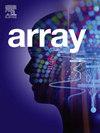人工智能在塑造智能未来中的作用:系统回顾
IF 2.3
Q2 COMPUTER SCIENCE, THEORY & METHODS
引用次数: 0
摘要
人工智能(AI),特别是人工智能,在满足现代组织对速度、效率和以客户为中心的需求方面越来越重要。然而,人工智能的快速发展,包括生成式人工智能(GenAI)代理,已经超过了对其应用、挑战和战略影响的凝聚力理解。这篇叙述性综述探讨了人工智能在塑造智能未来中的作用,重点关注其关键属性——自主性、反应性、主动性和学习能力——以及它改变组织绩效的潜力。我们在综合人工智能的各种能力(例如,多模态处理、分层架构和机器学习外包)和提供可操作的采用策略方面发现了研究差距。本文研究了代理人工智能如何通过LangChain、CrewAI、AutoGen和AutoGPT等工具实现自主决策、自动化流程和提高效率。它强调了从辅助(“副驾驶”)到自主(“自动驾驶”)模型的过渡,以及分层代理结构对系统协调的重要性。关键的贡献包括组织制定GenAI战略的框架、处理业务需求、工具选择、人力资源培训和风险管理。调查结果显示,尽管隐私、安全和道德问题等挑战仍然存在,但人工智能显著提高了生产率、降低了成本,并推动了创新。未来的研究应侧重于特定行业的案例研究,以加深理解,探索伦理和社会影响(如隐私、数据安全、劳动力市场影响),并研究人工智能与量子计算等新兴技术的融合。这篇综述为研究人员和实践者提供了有效利用人工智能的基础,同时解决了它的局限性和机遇。本文章由计算机程序翻译,如有差异,请以英文原文为准。
The role of agentic AI in shaping a smart future: A systematic review
Artificial intelligence (AI), particularly Agentic AI, is increasingly critical for addressing the demand for speed, efficiency, and customer focus in modern organizations. However, the rapid evolution of Agentic AI, including Generative AI (GenAI) agents, has outpaced a cohesive understanding of its applications, challenges, and strategic implications. This narrative review explores the role of Agentic AI in shaping an intelligent future, focusing on its key attributes—autonomy, reactivity, proactivity, and learning ability—and its potential to transform organizational performance. We identify a research gap in synthesizing the diverse capabilities of Agentic AI (e.g., multimodal processing, hierarchical architectures, and machine learning outsourcing) and providing actionable strategies for adoption. The paper examines how Agentic AI enables autonomous decision-making, automates processes, and enhances efficiency through tools like LangChain, CrewAI, AutoGen, and AutoGPT. It highlights the transition from assisted ("Copilot") to autonomous ("Autopilot") models and the importance of hierarchical agent structures for system coordination. Key contributions include a framework for organizations to formulate GenAI strategies, addressing business needs, tool selection, human resource training, and risk management. Findings reveal that Agentic AI significantly improves productivity, reduces costs, and drives innovation, though challenges such as privacy, security, and ethical concerns remain. Future research should focus on industry-specific case studies to deepen understanding, explore the ethical and social impacts (e.g., privacy, data security, labor market effects), and investigate the integration of Agentic AI with emerging technologies like quantum computing. This review provides a foundation for researchers and practitioners to leverage Agentic AI effectively while addressing its limitations and opportunities.
求助全文
通过发布文献求助,成功后即可免费获取论文全文。
去求助

 求助内容:
求助内容: 应助结果提醒方式:
应助结果提醒方式:


